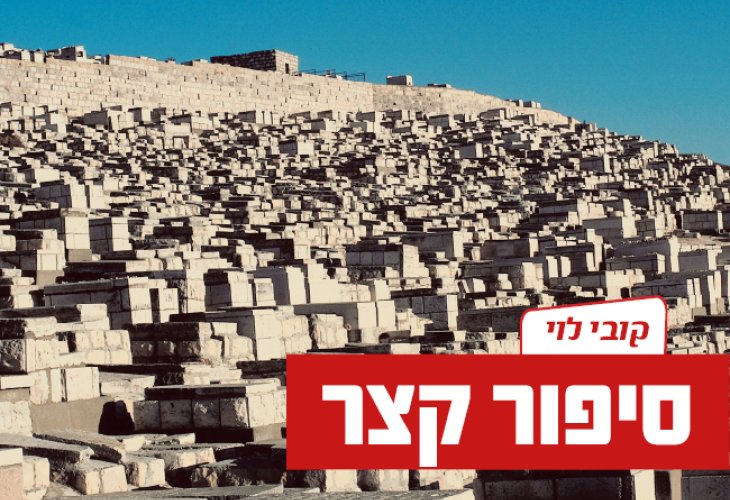Shabbat
"The Jewish People Are Asking for Shabbat”: Rabbi Warren Goldstein on the Shabbat Project
He never imagined that within seven months, his idea would become a global project uniting thousands of Jews with a single goal: observing one Shabbat a year. An interview with the Shabbat Project's initiator, Rabbi Dr. Warren Goldstein, ahead of this year's festivities.

Three days before the Shabbat Project (Parshat Noach), I had the privilege of speaking with Rabbi Dr. Warren Goldstein, Chief Rabbi of South Africa and founder of the international Shabbat Project. I asked him: A year ago, did you imagine this would become a worldwide phenomenon?
“Not at all,” Rabbi Goldstein says with a short laugh that quickly turns into humility. “Honestly, I didn’t dream of anything like this. An international Shabbat? That kind of project is far too complex. I didn’t think I could pull it off. I just wanted to give South African Jews a little taste of Shabbat. We started this as a local effort, hoping to bring Shabbat to as many Jews in our country as possible. When we saw how many people responded… we were completely surprised. If you had asked me seven months ago whether this would go global, I would have said no. Or I simply wouldn’t have been able to imagine it.”
So what happened? What turned this into such a far-reaching project?
“Believe it or not,” he says, “the impact of that first Shabbat in South Africa was so powerful that suddenly my phone wouldn’t stop ringing. Letters poured into our home. Rabbis and community leaders from all over the world were all saying the same thing: ‘We want this too.’
“I was thrilled, but at first I had no idea what to do. There was no plan. But I couldn’t say no. I thought to myself, how could I possibly face Hashem if He asked me, ‘What did you do for the Jews who wanted to know about Shabbat?’ Could I really say I only cared for my own community? The Jewish people are asking for Shabbat; how can we not respond?”
“The Goal Is to Spark a Shift in Consciousness”
Since that first Shabbat, Jewish communities across the U.S. and Europe have taken up the project in their regions, reaching even the most remote areas, places with only a few Jews, many of whom had never encountered mitzvot (commandments) or experienced a real Shabbat. Rabbi Goldstein and his wife created a comprehensive guide that has now been translated into eight languages. It covers everything: candle lighting, Kiddush, meals, what is permitted and what is not.
The Goldsteins continue to provide content and support from South Africa, with brief visits around the world to encourage communities in person. In Israel, Rabbi Goldstein met skepticism. “People warned me: ‘It won’t work here, the political climate is too tense,’” he recalls. “But I refused to listen. This is the Land of Israel. It's the largest Jewish community in the world. We don’t give up here.
“During Operation Protective Edge, we saw remarkable unity. But that unity came from pain, from war. Today, Am Yisrael (the Jewish nation) is craving unity from a place of love and spiritual closeness. That’s the power of Shabbat.”
Do you believe one Shabbat can really make a difference?
“I’m a believer,” Rabbi Goldstein replies firmly. “First and foremost, the goal is to shift consciousness. To plant the idea in people’s minds, to spark curiosity and connection. But yes, it can absolutely bring change. I’ve seen it.
“After our first Shabbat, a man approached me and said it was his first time keeping Shabbat. He decided to take it on once a month going forward. Another family, with five members, told me they made a pact: on every family member’s birthday week, they would all keep Shabbat together. That’s deeply meaningful to me.”
What if communities that aren’t traditionally observant, like Reform communities, want to participate?
“As long as people are keeping Shabbat according to the halachic (Jewish legal) guidelines we provide from the Shulchan Aruch, every Jew is welcome. I can tell you about Reform Jews who came and said, ‘We want to learn how to keep Shabbat.’ And for many, it was their very first time doing so. I even spoke with a Reform rabbi who told me that after experiencing the Shabbat Project, she asked her community to begin keeping Shabbat fully.”
How does it feel now, so close to the big day?
“There’s a supernatural feeling about it,” Rabbi Goldstein says. “With any big project, especially a global one, you expect to push, market, and persuade. And of course, we’ve worked hard. But with this? It’s different. There’s a kind of energy behind it, a natural current carrying it forward.
“I didn’t have to market this to the world. The world came to me and asked for it. That’s when you know something real is happening. It’s deeply emotional for me because this isn’t just a project. It’s about helping people connect to something higher. To help them discover their Father in Heaven. And the fact that we’re here today, talking about this… that says everything.”
Is this a one-time event?
“Absolutely not. My wife actually suggested the model: instead of different Shabbat dates in different cities, we’ll set one global Shabbat for everyone. So mark your calendars. Next year’s Global Shabbat will be on Parashat Lech Lecha, October 23, 2015.”
Conclusion
What began as a quiet effort to enrich one community has grown into a movement that’s lighting up Jewish hearts around the world. For Rabbi Warren Goldstein, the Shabbat Project is more than an event—it’s a call for unity, for identity, for renewal. And as Jews around the globe light their candles, share their tables, and disconnect from distraction, they’re answering that call one Shabbat at a time.

